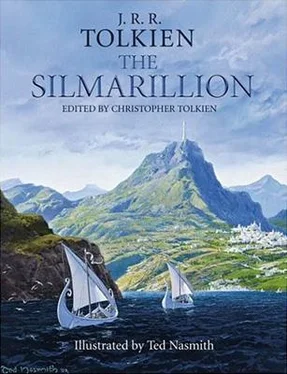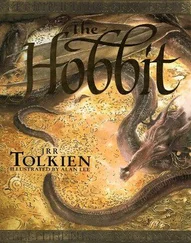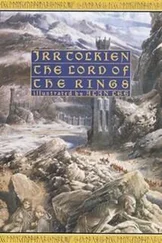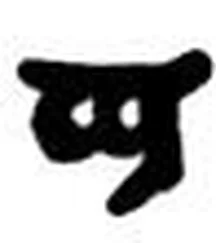Vairë 'The Weaver', one of the Valier, the spouse of Námo Mandos. 18, 21
Valacirca 'The Sickle of the Valar', name of the constellation of the Great Bear. 48, 211
Valandil Youngest son of Isildur; third King of Arnor. 367
Valaquenta 'Account of the Valar', a short work treated as a separate entity from The Silmarillion proper.
Valar 'Those with Power', 'The Powers' (singular Vala); name given to those great Ainur who entered into Eä at the beginning of Time, and assumed the function of guarding and governing Arda. Called also the Great Ones, the Rulers of Arda, the Lords of the West, the Lords of Valinor. Passim; see especially 10-12, 37, 81-2, and see also Ainur, Aratar.
Valaraukar 'Demons of Might' (singular Valarauko), Quenya form corresponding to Sindarin Balrog. 26
Valaróma The horn of the Vala Oromë. 22, 37, 85, 108-9
Valier 'The Queens of the Valar' (singular Valie); a term used only in the Valaquenta. 18, 20, 23
Valimar See Valmar.
Valinor The land of the Valar in Aman, beyond the mountains of the Pelóri; also called the Guarded Realm. Passim; see especially 32-3, 117
Valmar The city of the Valar in Valinor; the name also occurs in the form Valimar. In Galadriel's lament in Lórien ( The Fellowship of the Ring II 8) Valimar is made equivalent to Valinor. 21-3, 33, 51, 57, 64, 70, 76-9, 82-4, 94, 117, 227-8, 307-8
Vána One of the Valier, the sister of Yavanna and spouse of Oromë; called the Ever-young. 18, 23, 114
Vanyar The first host of the Eldar on the westward journey from Cuiviénen, led by Ingwë. The name (singular Vanya ) means 'the Fair', referring to the golden hair of the Vanyar; see Finarfin. 35, 55, 59, 62-5, 69, 71, 83-4, 91, 112-4, 117, 155, 163, 310,315
Varda 'The Exalted', 'The Lofty'; also called the Lady of the Stars. Greatest of the Valier, the spouse of Manwë, dwelling with him on Taniquetil. Other names of Varda, as maker of the Stars, were Elbereth, Elentári, Tintallë. See especially 18-9, 18-9, 23-4, 29, 32, 34-6, 47-8, 54, 62, 73, 83-4, 86, 93, 113-6, 211, 313-6
Vása 'The Consumer', a name of the Sun among the Noldor. 114
Vilya One of the Three Rings of the Elves, the Ring of Air, borne by Gil-galad and afterwards by Elrond; also called The Ring of Sapphire. 357, 370
Vingilot (In full Quenya form Vingilótë ) . 'Foam-flower', the name of Eärendil's ship; see Rothinzil. 305, 310, 312, 319
Vinyamar The house of Turgon in Nevrast under Mount Taras. The meaning is probably 'New Dwelling'. 135, 141, 150, 155, 295-7
Voronwë 'The Steadfast', Elf of Gondolin, the only mariner to survive from the seven ships sent into the West after the Nirnaeth Arnoediad; met with Tuor at Vinyamar and guided him to Gondolin. 240, 295
Westernesse See Anadûnë, Númenor.
White Council The Council of the Wise in the Third Age formed to oppose Sauron. 373-5
White Mountain See Taniquetil.
White Tree See Telperion, Galathilion, Nimloth (1). The White Trees of Minas Ithil and Minas Anor: 337, 342, 361, 364-8, 378
Wildman of the Woods Name adopted by Túrin when he first came among the Men of Brethil. 265
Wilwarin Name of a constellation. The word meant 'butterfly' in Quenya, and the constellation was perhaps Cassiopeia. 48
Wizards See Istari. 372
Woodland Elves See Silvan Elves.
Yavanna 'Giver of fruits'; one of the Valier, numbered among the Aratar; the spouse of Aulë; called also Kementári See especially 20-1. 18, 20-3, 29-30, 33-5, 43-7, 57, 62, 82, 86-8, 90, 103, 113-4, 120, 321, 324, 362
Year of Lamentation The year of the Nirnaeth Arnoediad. 151, 243
Elements in Quenya and Sindarin Names
These notes have been compiled for those who take an interest in the Eldarin languages, and The Lord of the Rings is extensively drawn upon for illustration. They are necessarily very compressed, giving an air of certainty and finality that is not altogether justified; and they are very selective, this depending both on considerations of length and the limitations of the editor's knowledge. The headings are not arranged systematically by roots or in Quenya or Sindarin forms, but somewhat arbitrarily, the aim being to make the component elements of names as readily identifiable as possible.
adan (plural Edain) in Adanedhel, Aradan, Dúnedain. For its meaning and history see Atani in the Index.
aelin 'lake, pool' in Aelin-uial; cf. lin (2).
aglar 'glory, brilliance' in Dagor Aglareb, Aglarond. The form in Quenya, alkar, has transposition of the consonants: to Sindarin aglareb corresponds Alkarinquë. The root is kal- 'shine', q.v.
aina 'holy' in Ainur, Ainulindalë.
alda 'tree' (Quenya) in Aldaron, Aldudénië, Malinalda , corresponding to Sindarin galadh (seen in Caras Galadon and the Galadrim of Lothlórien).
alqua 'swan' (Sindarin alph ) in Alqualondë; from a root alak- 'rushing' occurring also in Ancalagon.
amarth 'doom' in Amon Amarth, Cabed Naeramarth, Úmarth, and in the Sindarin form of Túrin's name 'Master of Doom', Turamarth. The Quenya form of the word appears in Turambar.
amon 'hill', a Sindarin word occurring as the first element of many names; plural emyn in Emyn Beraid. 445
anca 'jaws' in Ancalagon (for the second element in this name see alqua ).
an(d) 'long' in Andram, Anduin; also in Anfalas ('Lang-strand') in Gondor, Cair Andros ('ship of long-foam') an island in Anduin, and Angerthas 'long rune-rows'.
andúnë 'sunset, west' in Andúnië, to which corresponds in Sindarin annun, cf. Annúminas, and Henneth Annun 'window of the sunset' in Ithilien. The ancient root of these words, ndu, meaning 'down, from on high', appears also in Quenya numen 'the way of the sunset, west' and in Sindarin dun 'west', cf. Dúnedain, Adûnaic adun in Adunakhôr, Anadûnë was a loan from Eldarin speech.
anga 'iron', Sindarin ang, in Angainor, Angband, Anghabar, Anglachel, Angrist, Angrod, Anguirel, Gurthang; angren 'of iron' in Angrenost, plural engrin in Ered Engrin.
anna 'gift' in Annatar, Melian, Yavanna; the same stem in Andor 'Land of Gift'.
annon 'great door or gate', plural ennyn, in Annon-in-Gelydh; cf. Morannon the 'Black Gate' of Mordor and Sirannon the 'Gate-stream' of Moria.
ar- 'beside, outside' (whence Quenya ar 'and', Sindarin a ), probably in Araman 'outside Aman'; cf. also ( Nirnaeth ) Arnoediad '(Tears) without reckoning'.
ar(a)- 'high, noble, royal' appears in a great many names, as Aradan, Aredhel, Argonath, Arnor, etc.; extended stem arat- appearing in Aratar, and in arato 'champion, eminent man', e.g. Angrod from Angaráto and Finrod from Findaráto; also aran 'king' in Aranrúth. Ereinion 'scion of kings' (name of Gil-galad) has the plural of aran; cf. Fornost Erain 'Norbury of the Kings' in Arnor. The prefix Ar- of the Adûnaic names of the Kings of Númenor was derived from this.
Читать дальше










